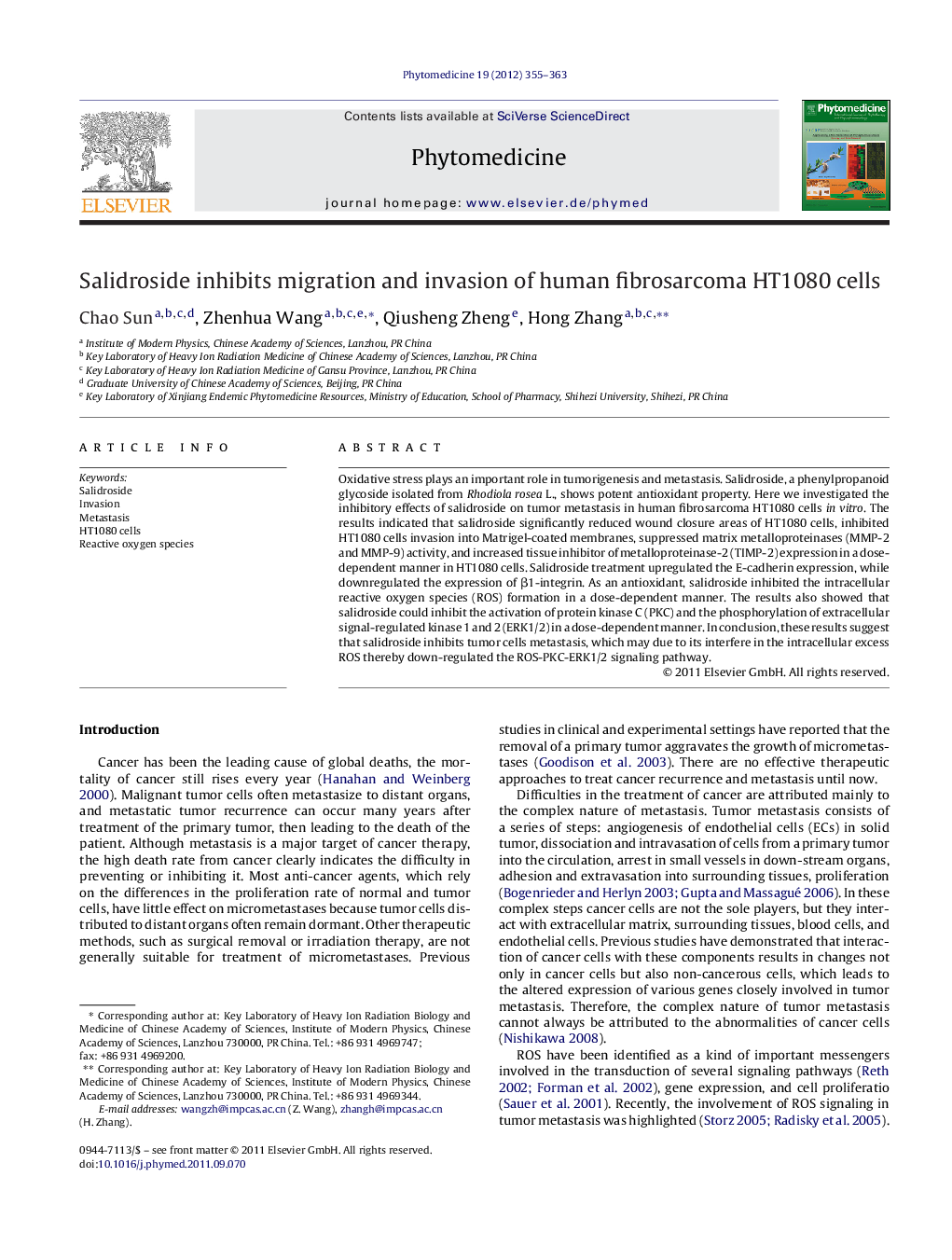| Article ID | Journal | Published Year | Pages | File Type |
|---|---|---|---|---|
| 5816829 | Phytomedicine | 2012 | 9 Pages |
Abstract
Oxidative stress plays an important role in tumorigenesis and metastasis. Salidroside, a phenylpropanoid glycoside isolated from Rhodiola rosea L., shows potent antioxidant property. Here we investigated the inhibitory effects of salidroside on tumor metastasis in human fibrosarcoma HT1080 cells in vitro. The results indicated that salidroside significantly reduced wound closure areas of HT1080 cells, inhibited HT1080 cells invasion into Matrigel-coated membranes, suppressed matrix metalloproteinases (MMP-2 and MMP-9) activity, and increased tissue inhibitor of metalloproteinase-2 (TIMP-2) expression in a dose-dependent manner in HT1080 cells. Salidroside treatment upregulated the E-cadherin expression, while downregulated the expression of β1-integrin. As an antioxidant, salidroside inhibited the intracellular reactive oxygen species (ROS) formation in a dose-dependent manner. The results also showed that salidroside could inhibit the activation of protein kinase C (PKC) and the phosphorylation of extracellular signal-regulated kinase 1 and 2 (ERK1/2) in a dose-dependent manner. In conclusion, these results suggest that salidroside inhibits tumor cells metastasis, which may due to its interfere in the intracellular excess ROS thereby down-regulated the ROS-PKC-ERK1/2 signaling pathway.
Related Topics
Life Sciences
Biochemistry, Genetics and Molecular Biology
Clinical Biochemistry
Authors
Chao Sun, Zhenhua Wang, Qiusheng Zheng, Hong Zhang,
